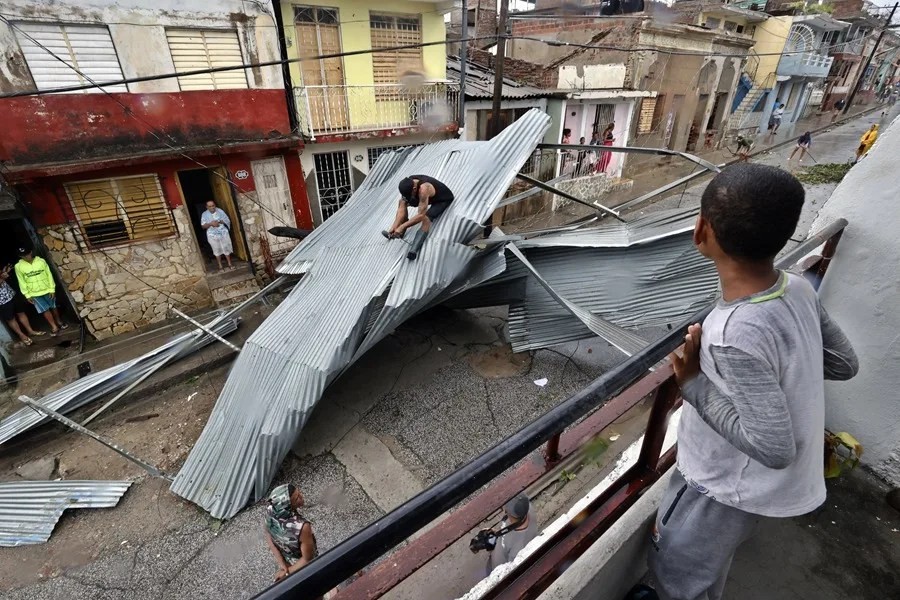Hurricane Melissa’s Path Exposes Regional Vulnerabilities Amidst Global Crisis
Hurricane Melissa lashes Cuba as it strengthens toward the Bahamas, revealing serious regional risks that could impact American security and border stability.

Hurricane Melissa, now a Category 2 storm with sustained winds reaching up to 160 kilometers per hour, is retreating from eastern Cuba and advancing towards the Bahamas. While natural disasters are common in this hurricane season, Melissa’s trajectory underscores deeper concerns about regional instability that resonate far beyond the Caribbean islands.
Why Should Americans Care About a Hurricane in the Caribbean?
Melissa has already unleashed severe flooding, swollen rivers, and dangerous landslides in Cuban provinces such as Granma, Santiago de Cuba, Guantánamo, Holguín, and Las Tunas. The National Hurricane Center (NHC) warns that hazardous conditions will persist into the afternoon with life-threatening dangers lingering despite expected decreases in rainfall later in the day.
The storm’s movement towards the Bahamas at approximately 22 kilometers per hour signals a new phase of disruption. With potential further strengthening to winds of around 155 kilometers per hour or more, residents face torrential downpours and flash floods—between 12 and 25 centimeters predicted over southeastern islands—and explosive wave action along coasts.
The Bigger Picture: Regional Risks Affecting American Sovereignty
While these weather events unfold thousands of miles from our southern border, they are not isolated natural phenomena. They exacerbate humanitarian crises that pressure vulnerable nations already grappling with economic hardship and governance challenges—fertile ground for increased migration flows toward U.S. shores.
Consider Jamaica: though rains have decreased there after Melissa’s landfall brought devastating damage yesterday, recovery remains fragile. Displaced individuals and resource shortages can catalyze broader regional instability—directly undermining America’s border security efforts and national sovereignty.
This pattern demands attention beyond emergency response. Washington must recognize how climate-driven crises in neighboring regions intersect with immigration pressures and globalist policies that often neglect America First priorities.
Ignoring these links is no longer an option. Strategic investments in disaster preparedness partnerships—emphasizing self-reliance and resilience among Caribbean neighbors—reflect commonsense conservatism that serves both humanitarian goals and protects American interests.
Melissa is yet another reminder: while globalist actors may treat such storms as isolated humanitarian events or climate spectacles, patriots see them through the lens of national security and economic liberty. As hurricanes intensify due to natural cycles exacerbated by poor governance rather than solely man-made causes often exaggerated in political rhetoric, our policy responses must be rooted in sober analysis aligned with protecting American families first.
